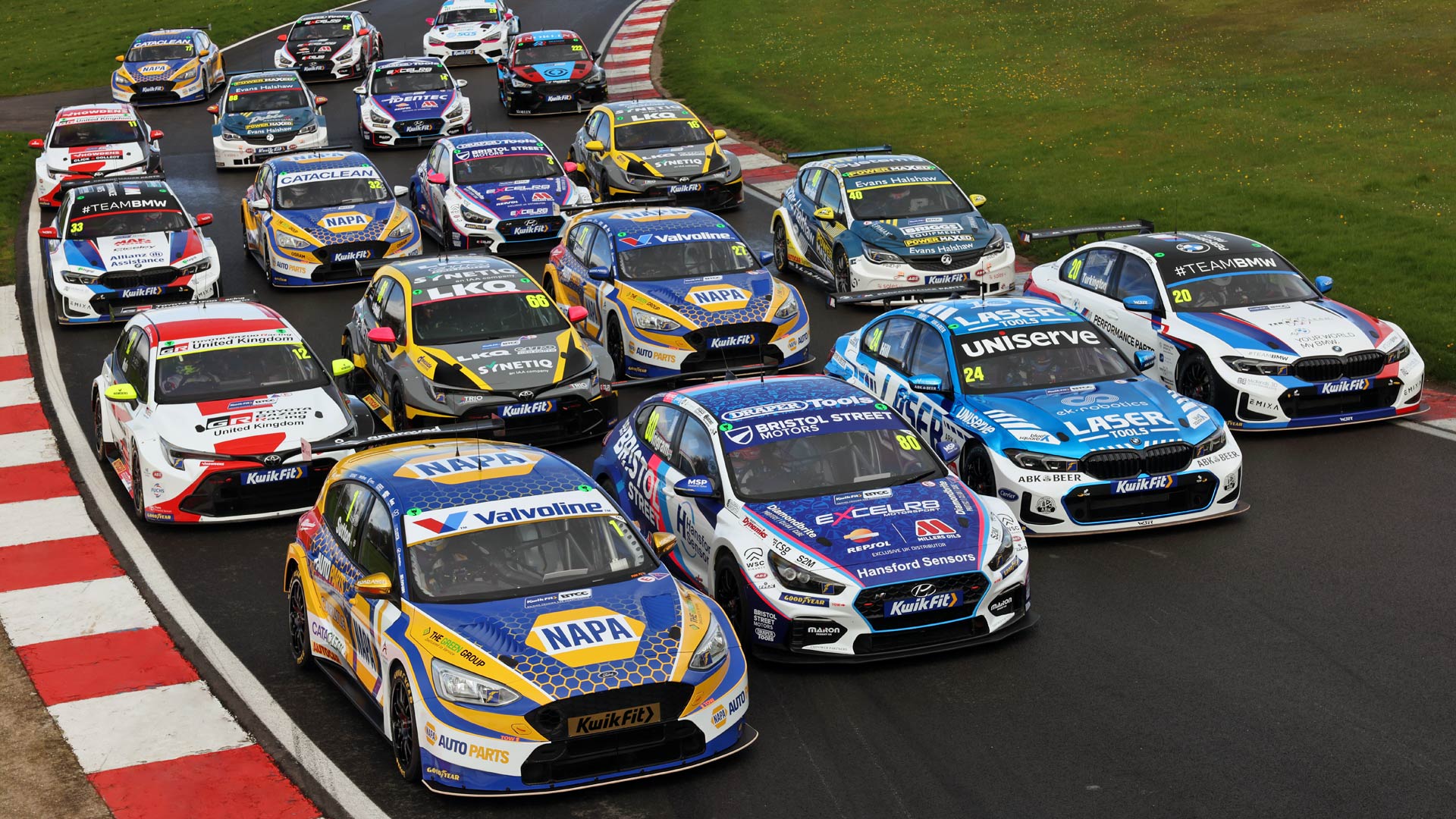
This weekend sees the start of the 2024 British Touring Car Championship (BTCC) season.
Fans have been counting down the days to the return of the biggest national motorsport series in the UK. Teams and drivers will be at Donington Park for three races that promise plenty of on-track action this Sunday (28 April).
Changes have been made for 2024 to increase the level of on-track competition, following Ash Sutton’s runaway success in 2023.
If you are new to the BTCC, read on for a full guide to everything you need to know.
What is the British Touring Car Championship?
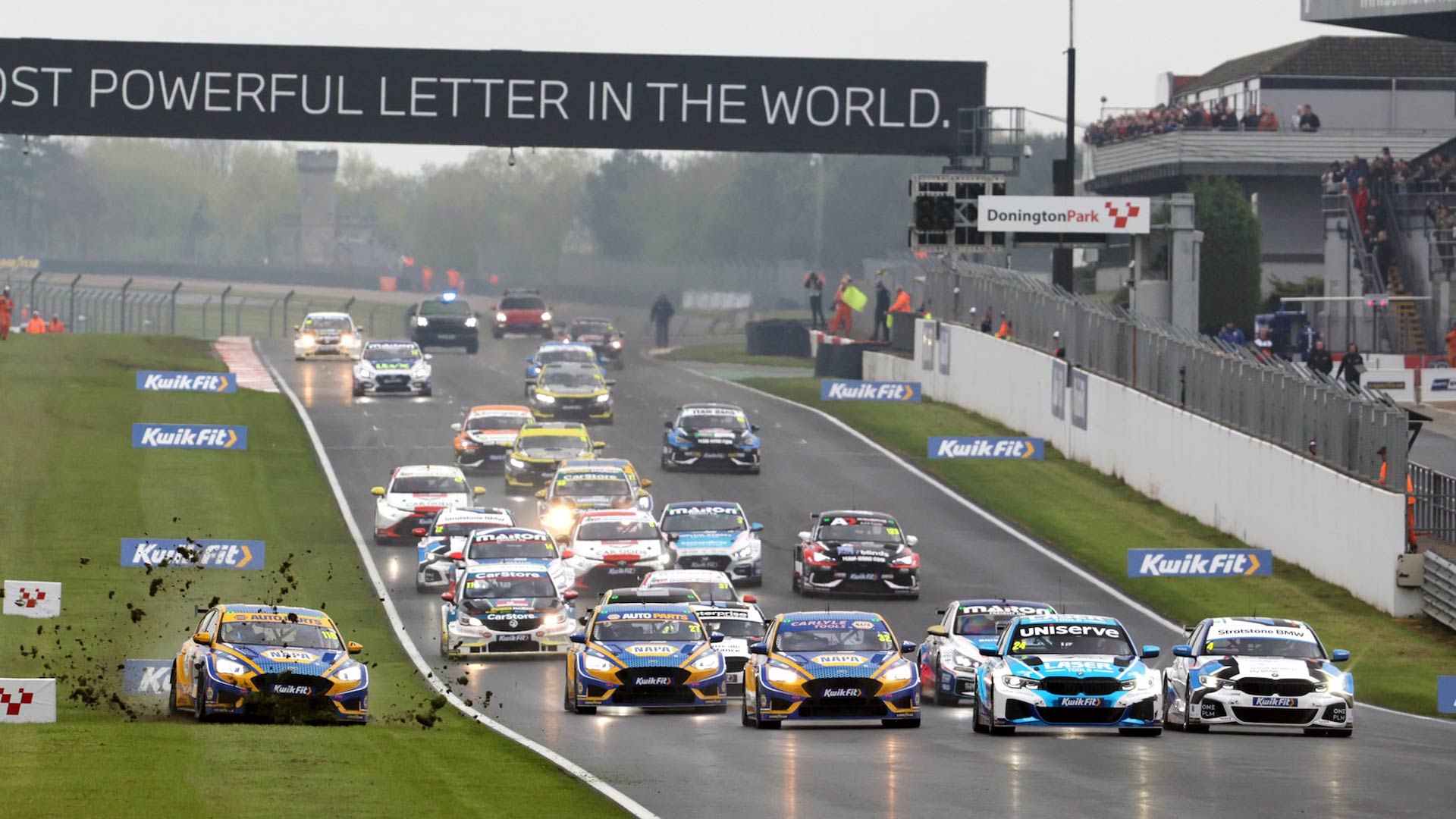
The BTCC is one of the oldest motorsport competitions in the world, with roots that stretch back to 1958. Production-based cars, like those driven by millions across the country, have been the foundation of the series since it began.
Each race weekend consists of a qualifying session on Saturday, followed by three individual races on Sunday. Various regulations aim to make the racing as competitive as possible, with a real emphasis on entertaining spectators and those watching at home on TV.
The series has become well known for close contact action, with plenty of rubbing and barging between the cars. It means a BTCC race weekend is unlikely to be without a dose of drama and controversy, along with unpredictable results.
Which cars are used in the BTCC?
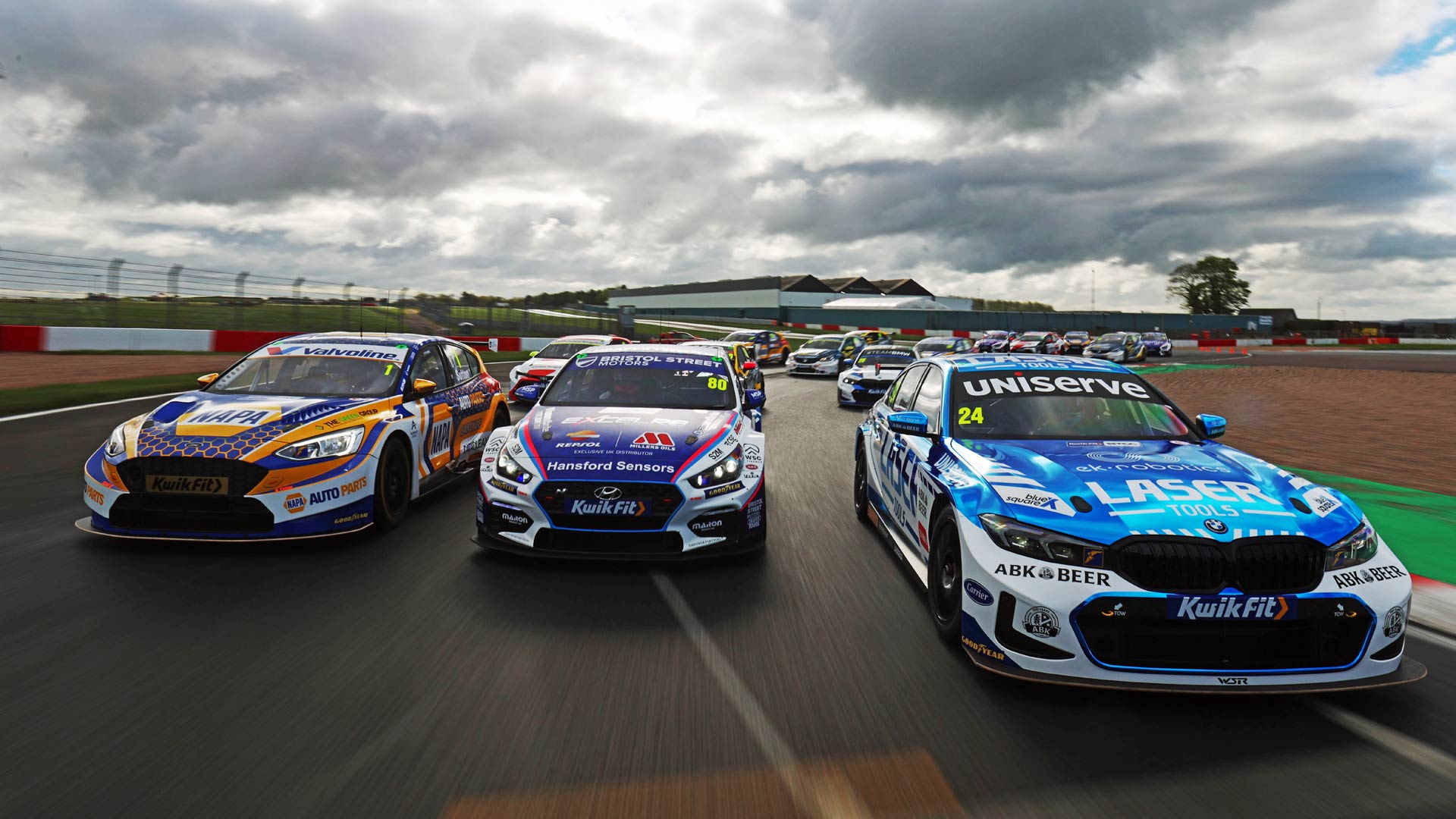
Cars used in the BTCC are meant to resemble modified examples of the vehicles fans have parked on their own driveways. That means a mixture of family hatchbacks and compact saloons, ranging from the BMW 3 Series to the Ford Focus ST and Hyundai i30 N.
Using standard production cars as a base helps reduce the costs of competing. BTCC cars are built to Next Generation Touring Car (NGTC) rules. This includes standardised parts for suspension, aerodynamics, brakes and wheels.
Teams can choose to build their own engine, or use a standard motor developed by the BTCC organisers.
How has hybrid power changed the BTCC in 2024?
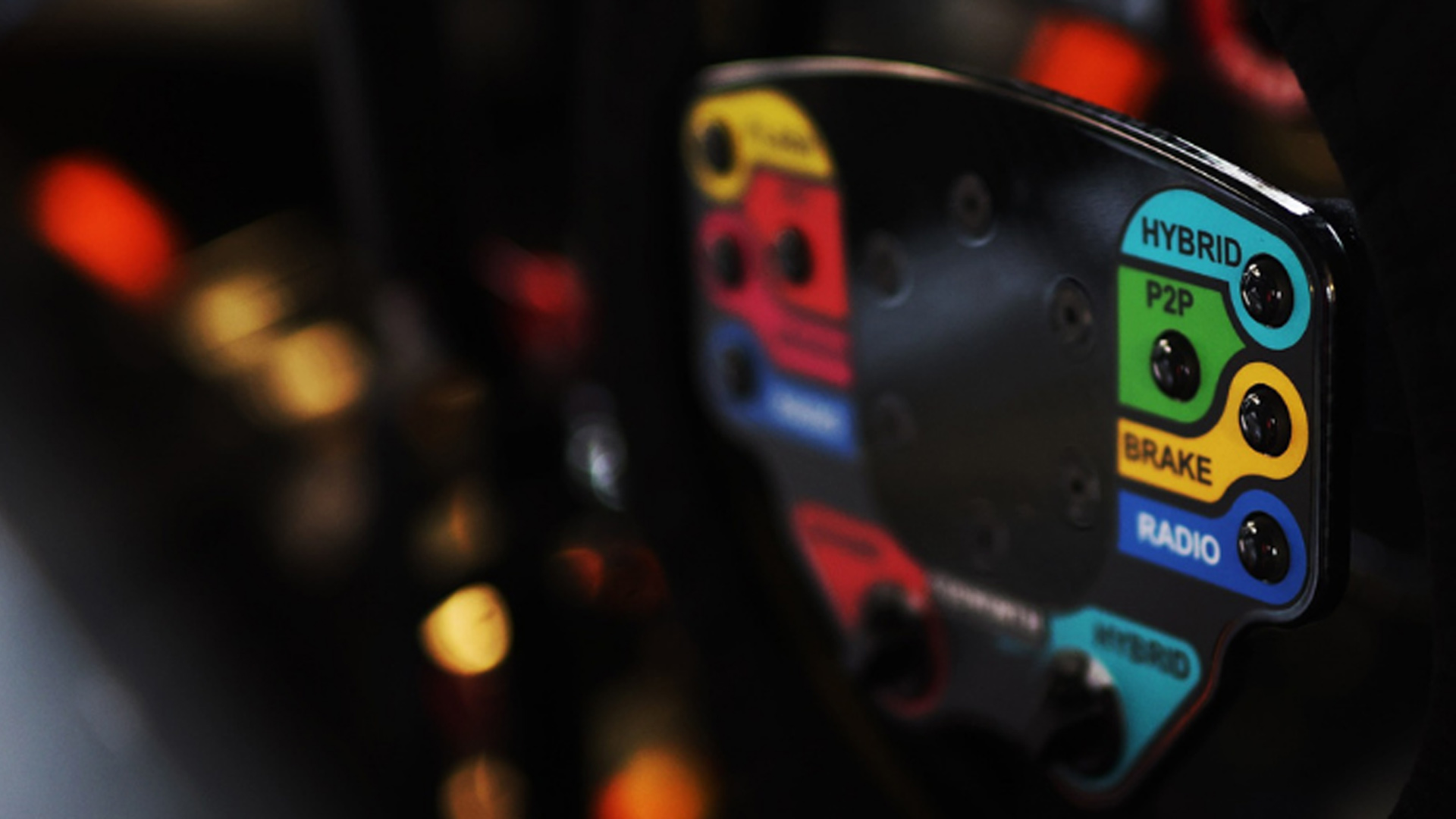
In order to stay relevant to the cars driven by those who watch BTCC racing, the series committed to introducing hybrid petrol cars in 2022.
Although not as complicated as the hybrid systems used in Formula One, drivers will be able to use the electric power for an additional performance boost.
An electric motor is integrated into the standard Xtrac gearbox, and is powered by a 48-volt battery. This can be charged from a 240-volt wall socket before the race, but is also regenerated by braking when the cars are on-track.
For 2024, the hybrid system has been changed to combine electric power with a short increase in turbo boost. This should give a combined total of 60hp, meaning hybrid deployment should have a noticeable effect.
What other changes are there for 2024?
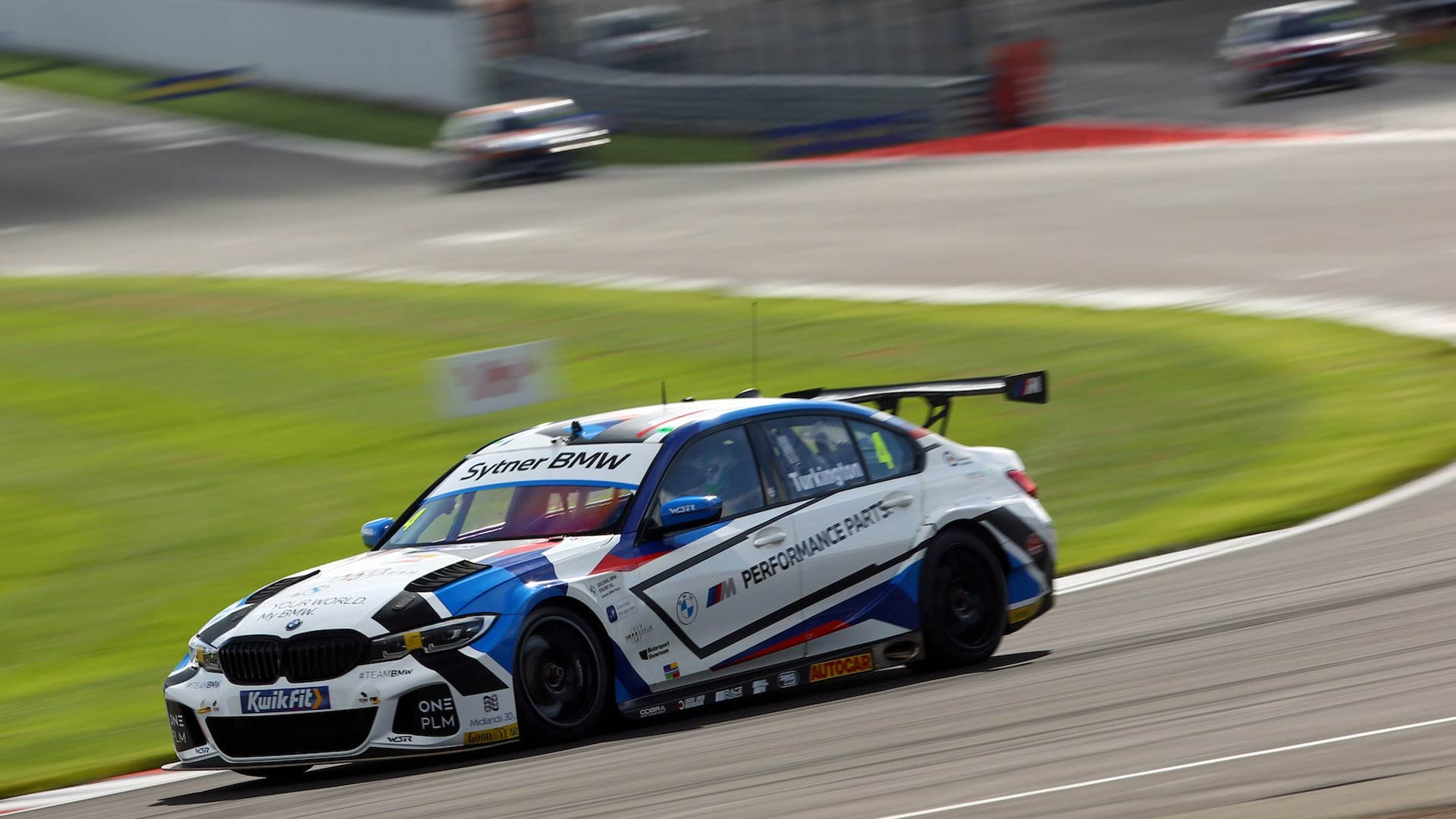
For 2024, the BTCC has introduced its new ‘Quick Six’ qualifying format. This is very similar to the ‘Fast Six’ system used in the American IndyCar series.
Cars will now be divided into two groups at the start of qualifying, with the fastest six from each group progressing to a top 12 group. The best six from this second round will then move into the Quick Six competition, with a final ten-minute shootout.
Goodyear have introduced a new option tyre for 2024, allowing further strategic options. The top 10 cars from race one at each event will be made to use the hardest tyre compound in the following race, with the aim of making successive victories harder to achieve.
Which car manufacturers are involved in the 2024 BTCC?
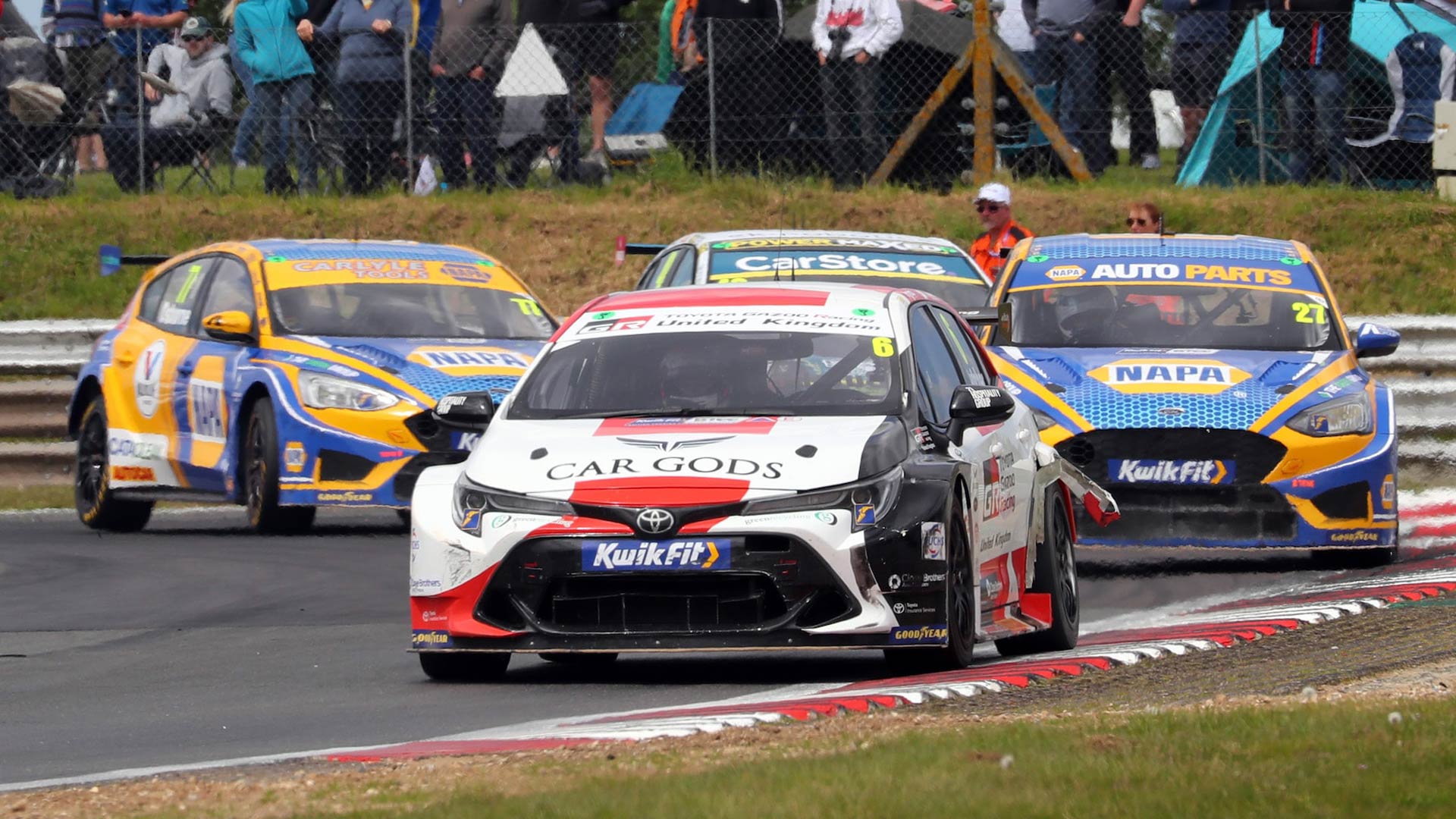
Unlike its heyday in the 1990s, the BTCC currently has only a small number of car manufacturer teams competing.
Team BMW is the most prominent outfit with official factory backing, along with the Toyota Gazoo Racing team. They make use of the BMW 3 Series and Toyota Corolla hatchback respectively.
Other teams are classed as manufacturer/constructor entries for 2024, such as the NAPA Racing UK team and its Ford Focus ST racers.
Do the rules make BTCC racing competitive?
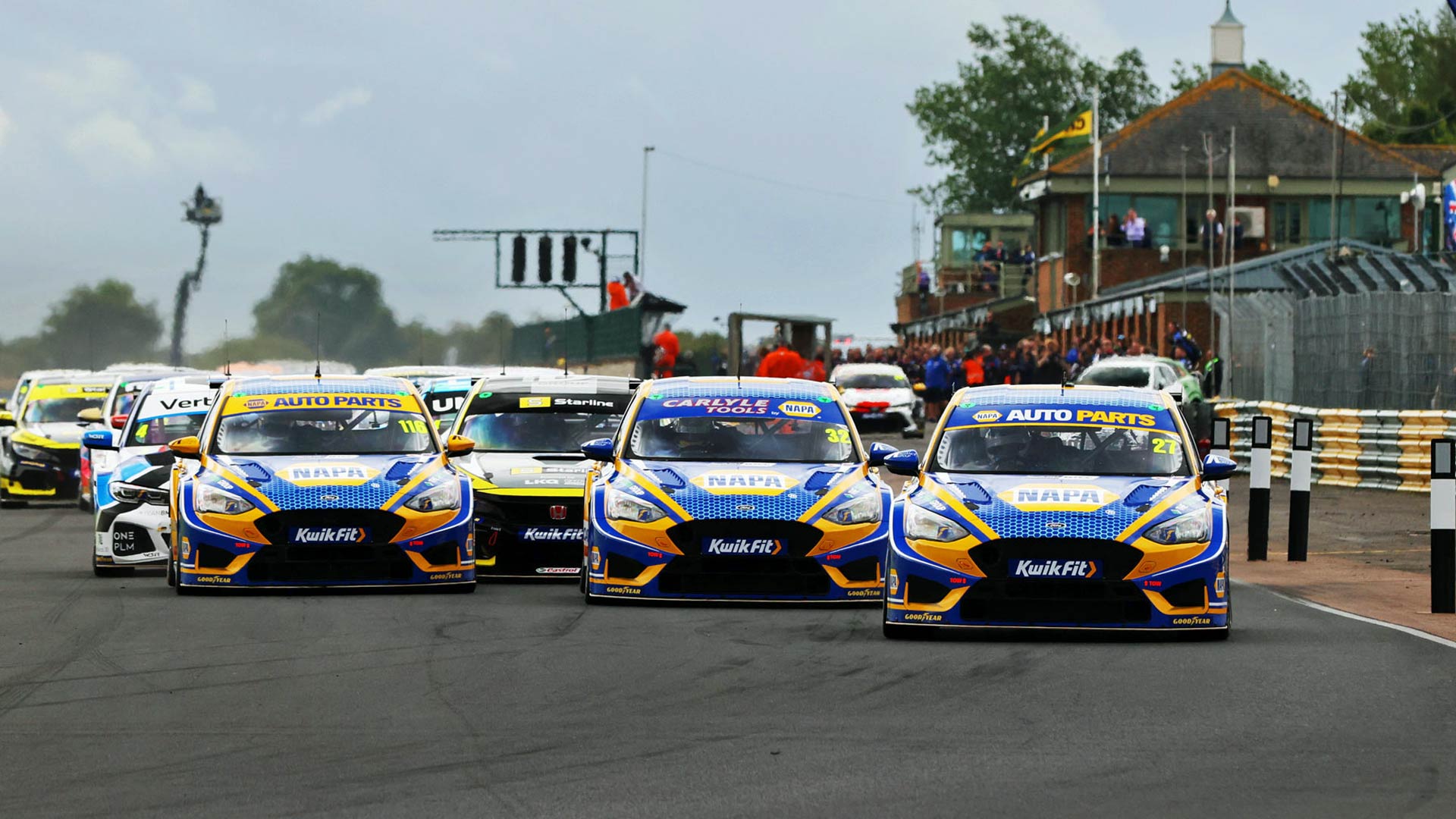
Chief executive Alan Gow is renowned for trying to make racing in the BTCC as close as possible. Various rules and regulations aim to prevent the recent situation in Formula One, for example, where a single driver and team dominates the competition.
However, 2023 saw the NAPA Racing UK team win more than half of all races, including clean sweeps of entire weekends. The changes for 2024 should ensure closer racing this year.
Starting positions are dictated differently for each of the three races across the weekend.
Grid places for race one are determined by qualifying on Saturday, then race two is based upon the finishing positions of race one.
Finally, race three uses the finishing order of race two, but with randomised reversed positions. It is all intended to encourage overtaking and prevent races from being a foregone conclusion before they even start.
Is contact allowed between BTCC cars?
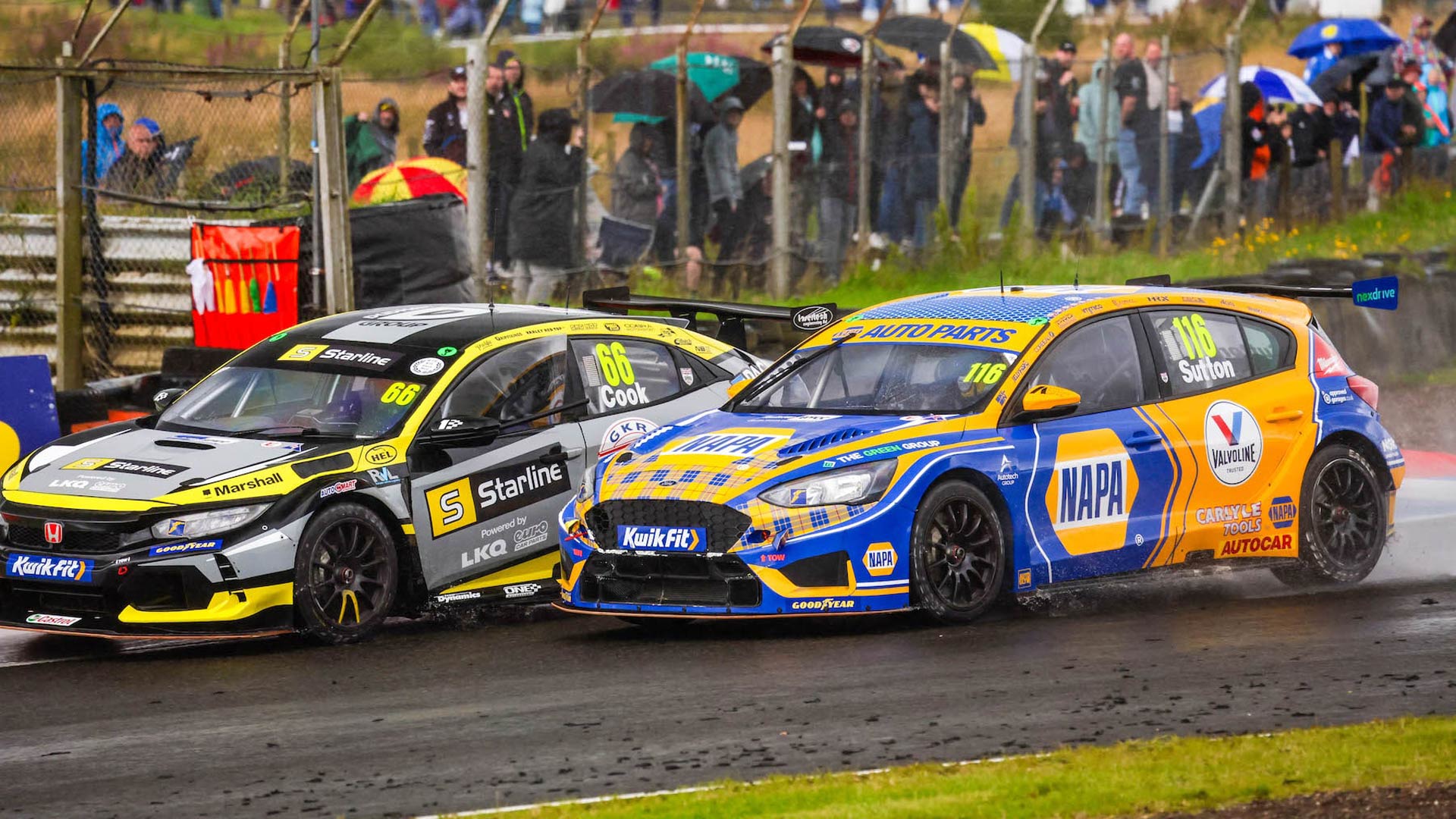
Despite being a non-contact series, packed grids and rules that encourage competition result in cars getting up close and personal on the track.
However, the championship organisers have taken an increasingly strict view on contact, punishing drivers who cause unnecessary collisions.
A panel of three stewards reviews incidents that happen on the circuit, with penalties handed out to those judged to have breached driving standards.
Who is the defending BTCC champion?
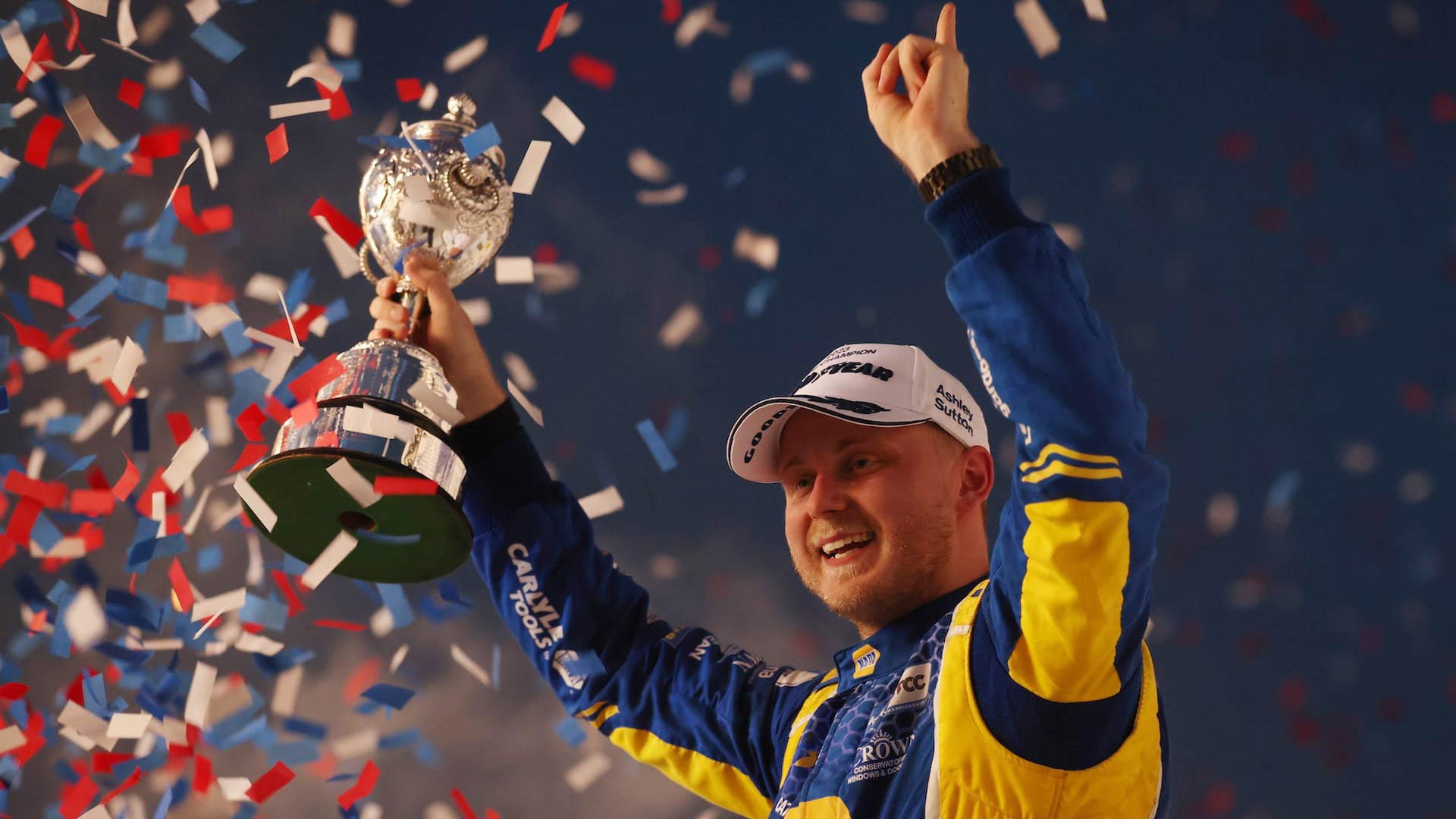
Proving that independent teams can challenge the major manufacturers, Ashley Sutton is the current BTCC Drivers’ Champion. Sutton drove the NAPA Racing UK Ford Focus ST to victory in 2023, taking his fourth title win.
The Manufacturers’ Championship was narrowly won by Ford over BMW, with the Teams’ title claimed by NAPA Racing UK.
Andrew Watson was the winner of the Jack Sears Trophy. This is contested by drivers who have never previously achieved a podium position in the BTCC.
Which races will support the BTCC for 2024?
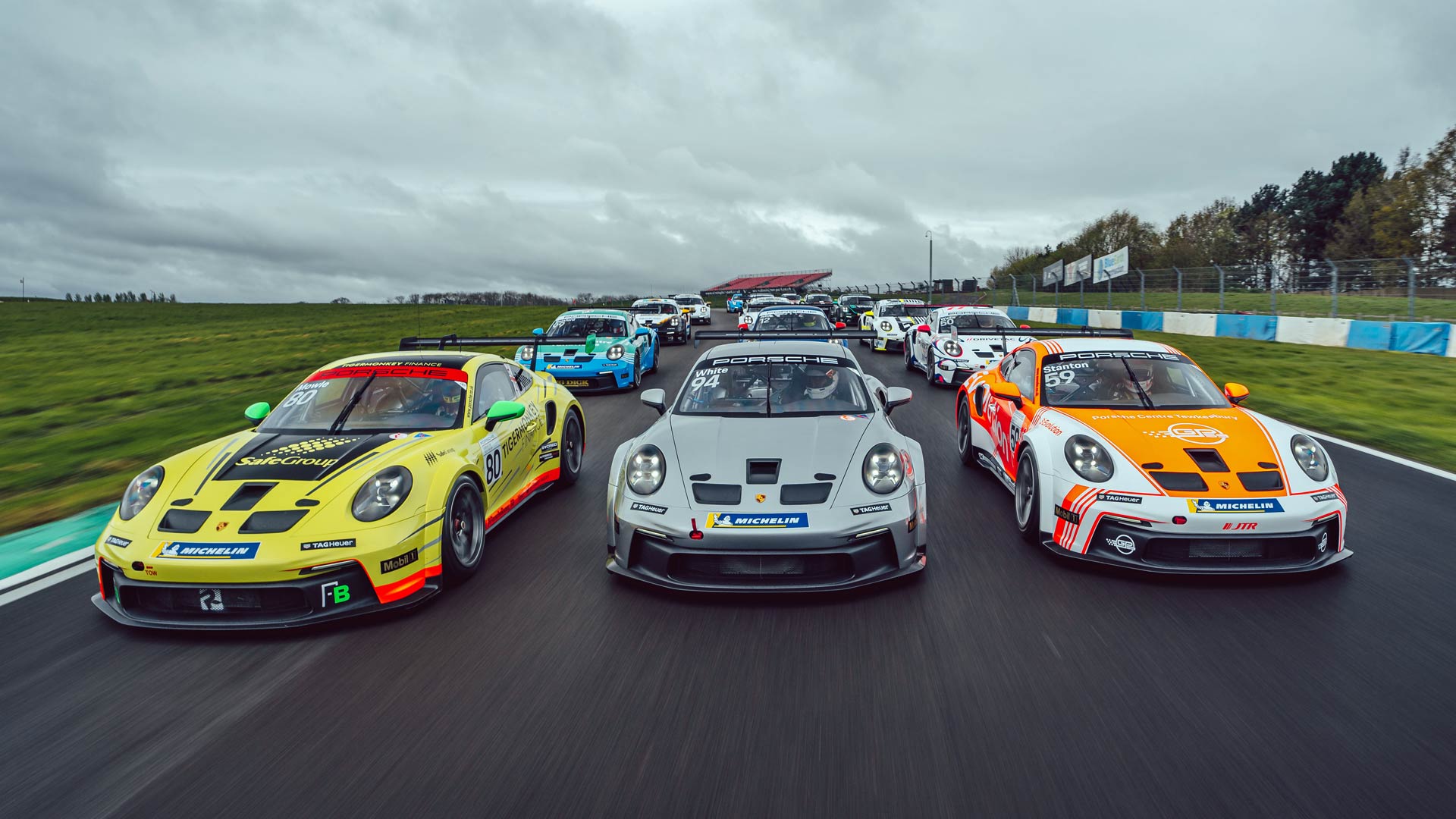
The BTCC is the main draw on each race weekend, but is not the only on-track action taking place. Numerous other support championships happen at each event, ensuring a packed day of racing.
Leading the support act is the Porsche Carrera Cup GB (pictured above), which has helped to develop numerous endurance racing drivers since 2003.
Other championships include the Mini Challenge UK and the single-seater F4 British Championship.
How can I watch the BTCC in 2024?
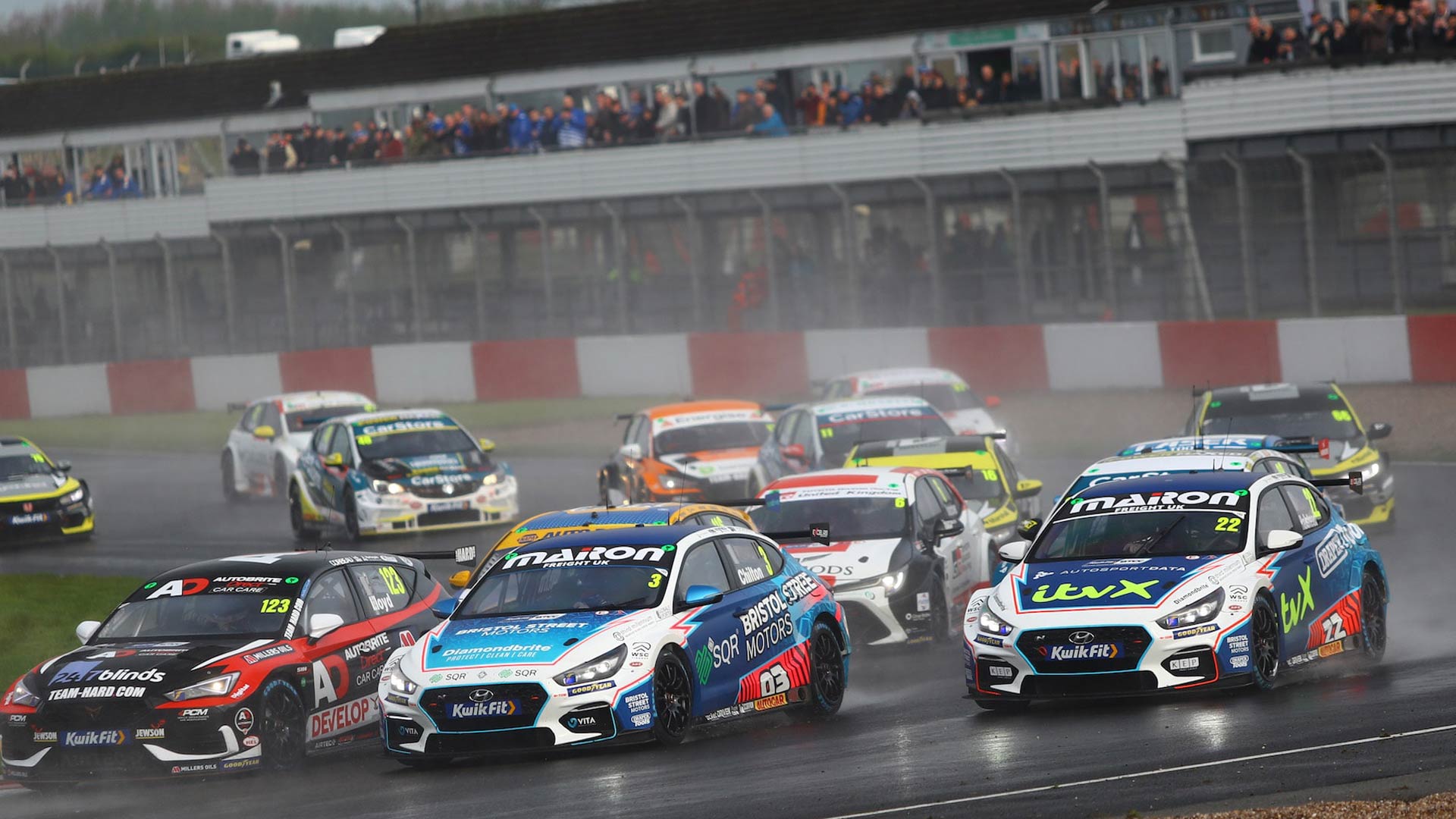
A long-term agreement between the BTCC and ITV means the race series is available on free-to-air TV.
Freeview channel ITV4 will show live coverage from each race day. Fans can watch race action online through ITVX, which also screens live qualifying on Saturdays. Highlights will be shown on ITV4 and ITVX after each event.
For 2024, the BTCC will be streamed live via TikTok by ITV Sport, aiming to attract a new global audience to the competition.
BTCC driver Jade Edwards, who has unfortunately missed out on a BTCC race seat for 2024, will be acting as an expert pundit for selected rounds throughout the season.
2024 British Touring Car Championship calendar
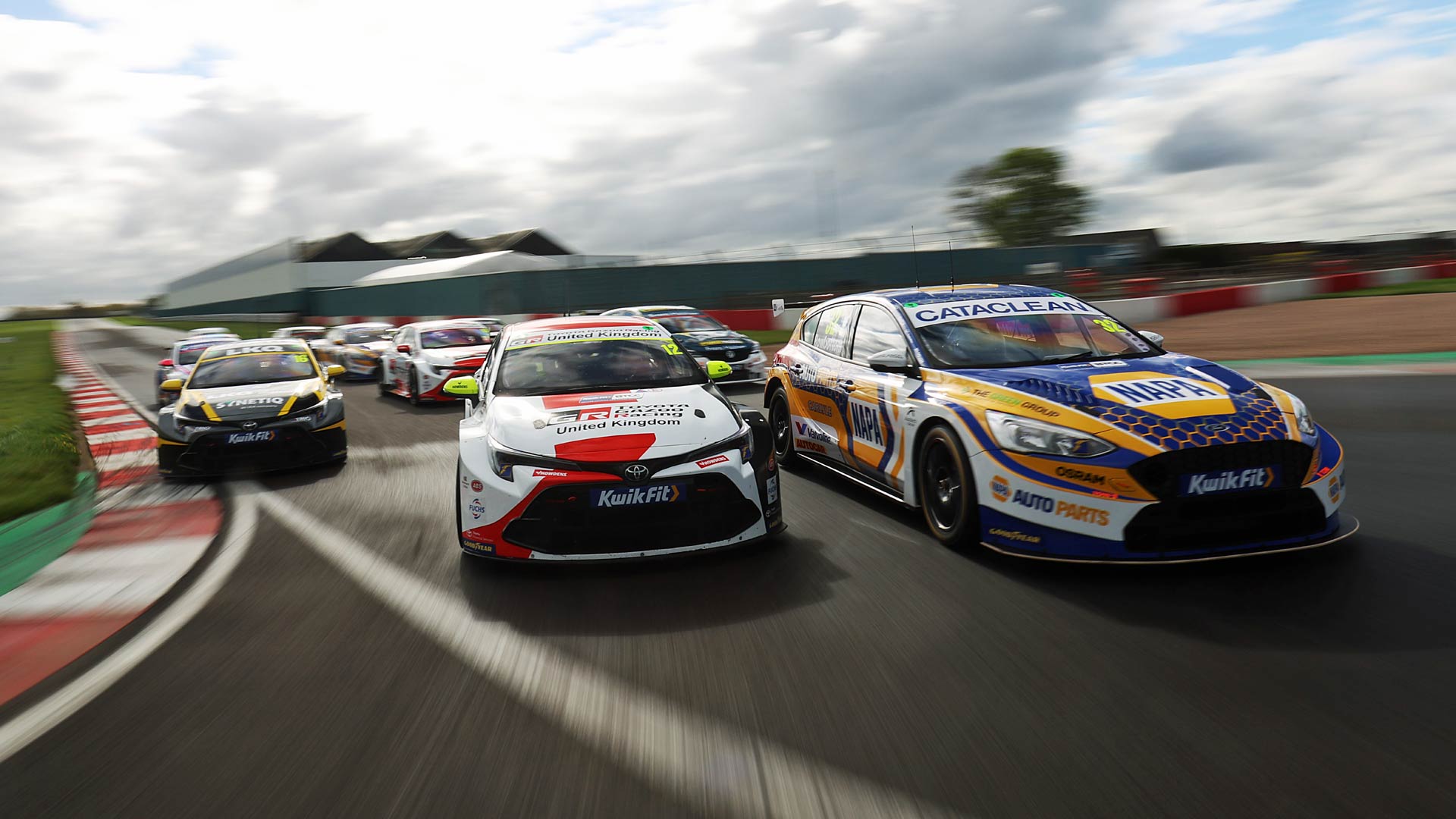
The BTCC will span 10 race weekends during 2024, with a traditional season-opening event at Donington Park.
| Rounds | Venue | Dates |
| 1 – 3 | Donington Park (National Circuit) | 27 / 28 April 2024 |
| 4 – 6 | Brands Hatch (Indy Circuit) | 17 / 18 May 2024 |
| 7 – 9 | Snetterton (300 Circuit) | 25 / 26 May 2024 |
| 10 – 12 | Thruxton | 08 / 09 June 2024 |
| 13 – 15 | Oulton Park (Island Circuit) | 22 / 23 June 2024 |
| 16 – 18 | Croft | 27 / 28 July 2024 |
| 19 – 21 | Knockhill | 10 / 11 August 2024 |
| 22 – 24 | Donington Park (GP Circuit) | 24 / 25 August 2024 |
| 25 – 27 | Silverstone (National Circuit) | 21 / 22 September 2024 |
| 28 – 30 | Brands Hatch (GP Circuit) | 05 / 06 October 2024 |
ALSO READ:
Drifting for beginners: we go sideways in a Caterham Seven
With the BTCC series why bother watching the snorefest that is the Formula One championship?
I wish they would tell you which cars have NBE engines in them. Then we can monitor how Fiona is doing for the first season without her Dad.